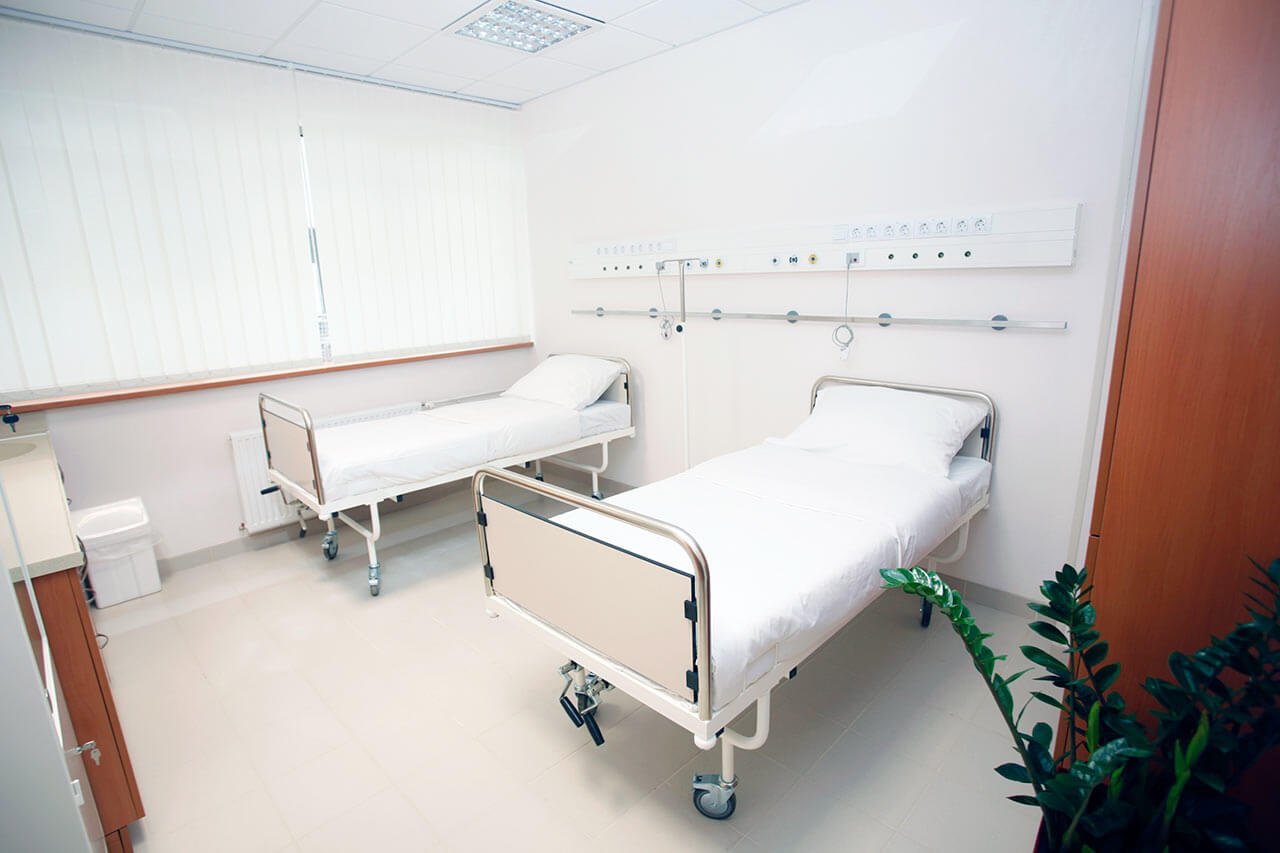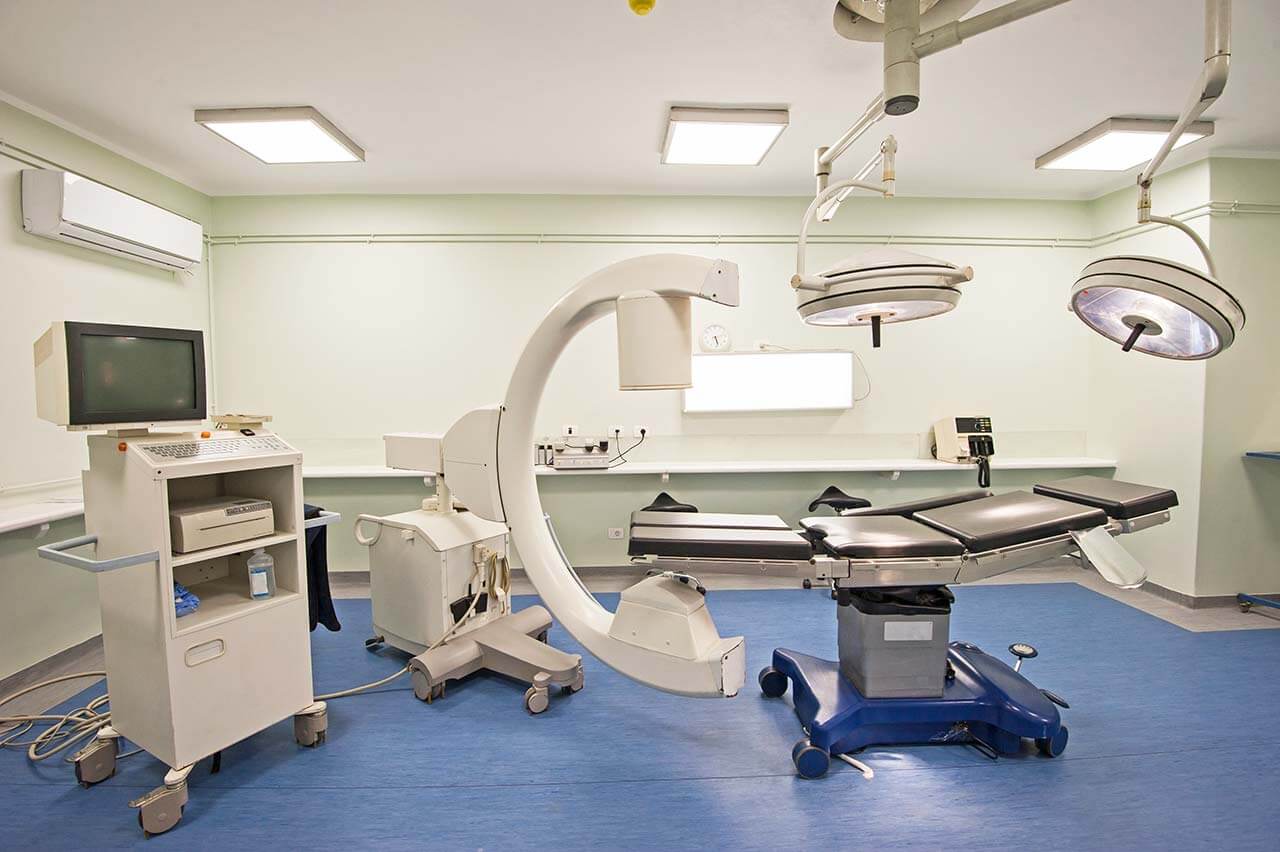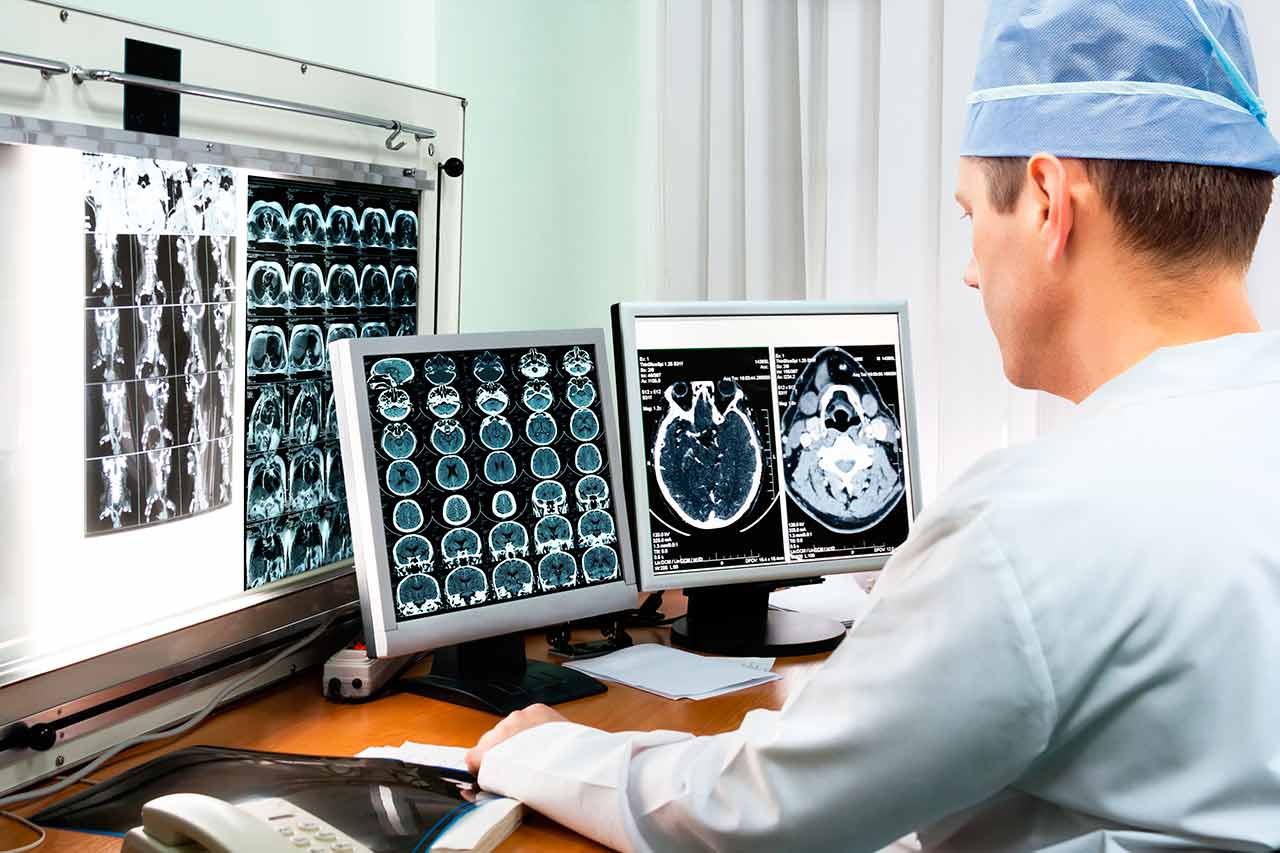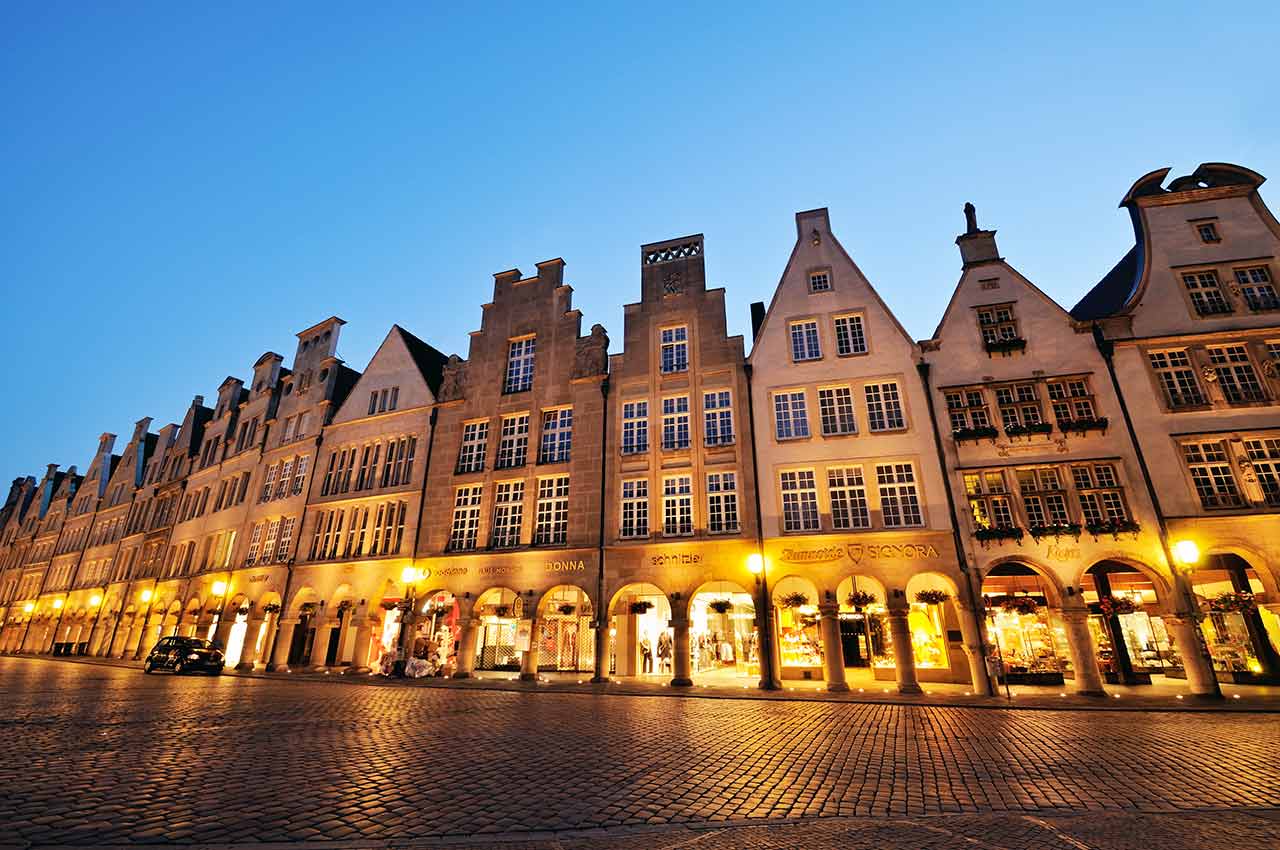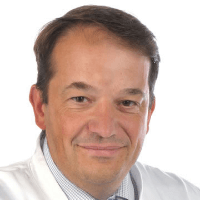
The program includes:
- Initial presentation in the clinic
- history taking
- general clinical examination
- laboratory tests:
- complete blood count
- biochemical analysis of blood
- urinalysis
- TSH-basal, fT3, fT4
- PSA blood test
- tests for urogenital infections
- indicators of inflammation
- indicators of blood coagulation
- ultrasound scan of the urogenital system
- renal scintigraphy
- PSMA PET-CT (on indication, additional cost)
- PSMA treatment
- full body scintigraphy after 24 hours
- full body scintigraphy after 48 hours
- symptomatic treatment
- cost of essential medicines
- nursing services
- elaboration of further recommendations
- stay in the hospital with full board
- accommodation in a room with 2 beds
How program is carried out
During the first visit, the doctor will carry out a general physical examination and go through the results of your previous laboratory and instrumental tests. After that, you will undergo any necessary additional tests, such as an assessment of your liver and kidney function, a scintigraphy of your skeleton and salivary glands, a PSMA PET/CT (additional cost). This will allow the doctor to calculate your individual dosage of the radionuclide.
PSMA therapy with Lutetium-177 is carried out via intravenous administration of a solution containing the radioactive isotope, Lutetium-177. The solution is injected through a catheter. This is a short procedure, as the infusion usually takes no more than 20 minutes.
During the procedure, you will need to apply cooling bags to your salivary glands, as Lutetium-177 partially accumulates in the salivary glands, affecting their function and causing a dry mouth. You will also receive intravenous saline solutions to protect your kidneys.
After the infusion of Lutetium-177, you will stay in a specially equipped (radiation-shielded) ward for 48 hours. The drug is quickly excreted by the kidneys, and after 48 hours you will no longer be dangerous to others. During these 48 hours, you can read, use a mobile phone, tablet or computer – none of these devices will be a source of radiation in the future.
Follow-up examinations include whole-body scintigraphy and computed tomography in 24 hours, and then again 48 hours after the procedure.
Required documents
- Medical records
- MRI/CT scan (not older than 3 months)
- Biopsy results (if available)
Service
You may also book:
 BookingHealth Price from:
BookingHealth Price from:
About the department
The Department of Adult and Pediatric Nuclear Medicine at the University Hospital Muenster offers the full range of radioisotope diagnostics and therapy at the highest technical level. The department specializes in the detection and treatment of benign and malignant thyroid diseases, oncopathology of other organs and anatomical structures of the human body. The department's feature is the radioisotope examinations in children, for example, PET-CT, PET-MRI, kidney, bone scintigraphy, etc. The high-quality medical care is provided thanks to the availability of advanced medical technologies and experienced medical personnel who regularly undergo advanced training courses to keep abreast of medical innovations. The department is headed by Prof. Dr. med. Michael Schäfers.
One of the classic treatment methods in nuclear medicine is radioiodine therapy, which is used to treat various benign (thyrotoxicosis) and malignant (papillary and follicular thyroid cancer) thyroid diseases. As a rule, the decision on the feasibility of radioiodine therapy is made within the outpatient admission. In addition, the therapeutic range covers such treatment methods as therapy for the treatment of bone metastases in prostate cancer, peptide receptor radionuclide therapy using lutetium Lu-177 DOTATATE in neuroendocrine tumors, PSMA therapy for the treatment of prostate cancer, selective internal radiation therapy using Yttrium-90 microspheres for the treatment of liver tumors and many other effective treatment methods.
The department is one of the most progressive medical institutions of this kind in Germany, which employs highly qualified, world-class specialists, including specially trained doctors for radioisotope diagnostics in children.
The diagnostic range of the department's services includes:
- Examinations of the circulatory and lymphatic systems
- Gamma camera/SPECT-CT
- Blood volume assessment in dehydration, overhydration, etc.
- Measurement of red blood cell viability, for example, in hemolytic anemias
- Imaging of the bone marrow functioning, for example, in the case of metastases in the bone marrow or bones
- Functional examination of the lymphatic vessels of the lower limbs, for example, in leg lymphedema
- Assessment of platelet viability, for example, in immune thrombocytopenia
- Imaging of lymph efflux and sentinel lymph nodes to localize sentinel lymph nodes prior to surgery (for example, in melanoma, breast cancer)
- Gamma camera/SPECT-CT
- Brain examinations
- Amino acid metabolism examination, for example, in brain tumors
- Imaging of beta-amyloid deposits in the brain
- Imaging of the dopamine transporter system (postsynaptic part) in Parkinson's disease, multiple system atrophy, etc.
- Imaging of the dopamine transporter system (postsynaptic part) (DatSCAN®)
- Examination of blood circulation in cerebrovascular diseases, dementia, stroke
- Scintigraphy of the spinal cord canal, for example, in pathological cerebrospinal fluid leak
- Lung and heart examinations
- Examination of pulmonary circulation and ventilation, for example, in pulmonary embolism (for preoperative evaluation)
- Examination of glucose metabolism to determine myocardial tissue viability
- Examination of the sympathetic nervous system in innervation disorders
- Examination of blood circulation in cardiovascular diseases (for example, coronary artery disease, heart attack)
- Cardiac SPECT-CT
- Myocardial scintigraphy
- Examination of the gastrointestinal tract (SPECT-CT/gamma camera)
- Scintigraphy to determine localization of the gastrointestinal bleeding
- Examinations in liver dysfunction
- Examination in gastrointestinal dysfunction (gastric emptying scintigraphy)
- Examination to localize Meckel's diverticulum
- Functional examination of esophageal muscles in case of impaired esophageal motility
- Kidney examinations (SPECT-CT/gamma camera)
- Examination of tubular kidney function in kidney failure, before the donorship, etc.
- Examination of glomerular kidney function, for example, in kidney failure
- Static renal imaging in regional defects
- Thyroid and parathyroid examinations
- Thyroid fine needle biopsy
- Thyroid and parathyroid scintigraphy
- Whole-body scintigraphy using iodine (iodine metabolism examination as part of follow-up monitoring after thyroid cancer treatment)
- Thyroid ultrasound examinations
- PET-CT for the diagnostics of cancer and inflammatory processes
- Amino acid metabolism examination, for example, in brain tumors
- Examination of glucose metabolism in tumors (for example, bronchial carcinoma, lymphoma, melanoma)
- Examination of the sympathetic nervous system in pheochromocytoma, neuroblastoma, etc.
- Examination of fluoride metabolism in inflammatory diseases of bones and joints, bone metastases, bone tumors
- Imaging of prostate-specific membrane antigen in prostate cancer
- Imaging of somatostatin receptors in neuroendocrine tumors
- SPECT-CT for the diagnostics of cancer and inflammatory processes
- Examination of the sympathetic nervous system in pheochromocytoma, neuroblastoma, etc.
- Skeletal scintigraphy
- Leukocyte scintigraphy
- Imaging of somatostatin receptors in neuroendocrine tumors
- Sentinel lymph node scintigraphy
- Testicular perfusion test in testicular torsion
- Functional examination of the salivary glands in acute and chronic salivary gland inflammation
- Functional examination of the lacrimal ducts
- Pediatric examinations
- PET CT
- PET MRI
- Kidney scintigraphy
- Skeletal scintigraphy
- MIBG scan
- Other diagnostic options
The therapeutic range of the department's services includes:
- Alpharadin therapy in prostate cancer and bone metastases
- Lutetium Dotatate therapy in neuroendocrine tumors
- 131 I-MIBG-therapy in neuroblastomas
- PSMA therapy in prostate cancer
- Radioiodine therapy in malignant diseases of the thyroid gland (papillary and follicular cancer)
- Radioiodine therapy in benign thyroid diseases (for example, goiter, thyrotoxicosis)
- Samarium therapy (pain therapy in bone metastases)
- Selective internal radiation therapy in liver cancer and liver metastases
- Cevaline therapy in non-Hodgkin lymphoma
- Other treatment methods
Curriculum vitae
- 04.1999 Habilitation, Department of Adult and Pediatric Nuclear Medicine, University Hospital Muenster.
- 07.1994 - 10.1995 Research Fellow, MRC Cyclotron Unit, Imperial College School of Medicine, London, UK.
- 06.1995 Doctoral Degree, Department of Adult and Pediatric Nuclear Medicine, University Hospital Muenster.
- 10.1987 - 06.1994 Study of Medicine, State Examination, University of Muenster.
- Since 12.2008 Full Professor of Nuclear Medicine, Director of the European Institute for Molecular Imaging (EIMI).
- Since 08.2013 Director of the Department of Adult and Pediatric Nuclear Medicine, University Hospital Muenster.
- Since 07.2007 Chairman of the European Institute for Molecular Imaging (EIMI), University of Muenster.
- 09.1999 - 06.2007 C3 Professor (tenure track) of Experimental Nuclear Medicine, University of Muenster.
Awards
- 09.2011 Poster Award of the German Society for Nephrology, German Society of Nephrology.
- 10.2004 Tyco Healthcare Advancement Award, German Society for Nuclear Medicine.
- 2004 Young Investigator Award, International Conference on Nuclear Cardiology (ICNC), Florence, Italy.
Membership in Professional Societies
- Since 2010 Chairman of the German Universities Nuclear Medicine National Committee.
- Since 2003 Chairman of the Cardiovascular Committee.
- Member of the Society of Nuclear Medicine (SNM).
- Member of the European Society of Molecular Imaging (ESMI).
- Member of the German Society of Cardiology (DGK).
- Member of the German Society of Radiology (DRG).
- Member of the German Society of Nuclear Medicine (DGN).
Research Focuses
- Multimodal molecular imaging.
- Development of targeted imaging probes for molecular imaging of cardiovascular inflammation.
- Apoptosis and automatic innervation.
- Phenotyping of transgenic mouse models.
- Clinical multimodal cardiovascular research.
- Hybrid imaging.
Photo of the doctor: (c) Universitätsklinikum Münster
About hospital
According to the Focus magazine, the University Hospital Muenster ranks among the top German hospitals!
The hospital belongs to the most prestigious medical institutions in Germany. The hospital is distinguished by a high professionalism of its doctors, state-of-the-art technological equipment and the availability of the most advanced diagnostic and therapeutic capabilities ensuring the first-class medical services. The hospital integrates more than 30 specialized departments, as well as numerous institutes and centers, thus representing all the specialties of modern medicine. The hospital treats more than 64,000 inpatients and 500,000 outpatients every year, which is an indisputable evidence of the highest quality of medical services.
The medical team of the hospital, consisting of more than 10,000 employers, is committed to preserving the physical health of patients, providing them with psychological support and compassionate attitude throughout the entire therapeutic process.
The hospital has succeeded in all specialties of medicine, however, main areas of its specialization include oncology, treatment of cardiovascular, neurological diseases, transplant medicine, psychiatry and psychosomatics, pediatrics with a special focus on rare diseases in children, traumatology, orthopedics, prenatal medicine, and reproductive medicine. In addition, key importance is given to scientific research and training of medical students, so that the specialists of the hospital make a momentous contribution to the development of medicine as a whole.
Photo: (с) depositphotos
Accommodation in hospital
Patients rooms
The patients of the University Hospital Muenster live in single or double rooms. The rooms are made in bright colors and modern design. Each room has an ensuite bathroom with shower and toilet. The standard room includes an automatically adjustable bed, a bedside table, a table and chairs for receiving visitors, a telephone and a TV. The hospital offers access to the Internet. If desired, the patient can also stay in the enhanced-comfort room.
Meals and Menus
The patients of the hospital are offered a tasty and balanced three meals a day: breakfast, lunch and dinner. The menu always features diet and vegetarian dishes. If for any reason you do not eat all the food, you will be provided with an individual menu. Please inform the medical staff about your dietary preferences prior to the treatment.
Further details
Standard rooms include:
Religion
Religious services are available upon request.
Accompanying person
During the inpatient program, an accompanying person may stay with you in a room or at the hotel of your choice.
Hotel
During the outpatient program, you can live at a hotel of your choice. Managers will help you to choose the most suitable options.
The hospital offers a full range of laboratory tests (general, hormonal, tests for infections, antibodies, tumor markers, etc.), genetic tests, various modifications of ultrasound scans, CT scans, MRI and PET / CT, angiography, myelography, biopsy and other examinations. Treatment with medications, endoscopic and robotic operations, stereotaxic interventions is carried out here, modern types of radiation therapy are also used. The hospital offers patients all the necessary therapeutic techniques.
- Stereotactic radiotherapy, including intracranial one
- Thulium and holmium laser enucleation of the prostate
- HIPEC for peritoneal cancer
- Imlantation of mechanical heart support systems
- Assisted reproductive technologies
These are arthrosis and sports injuries of the joints, benign neoplasms and malignant tumors of various localizations, spinal injuries, osteoporosis, benign prostatic hyperplasia, urolithiasis, inflammatory bowel disease and other pathologies.
- Traumatology and hand surgery
- Urology
- General and abdominal surgery
- Cardiology and cardiac surgery
- Obstetrics and gynecology
The hospital's team consists of more than 10,000 highly qualified employees.
